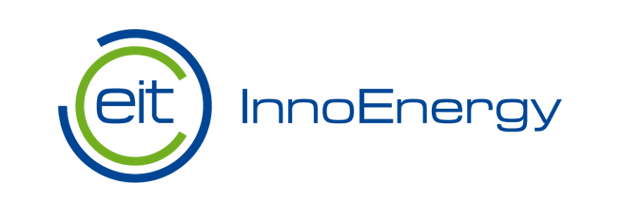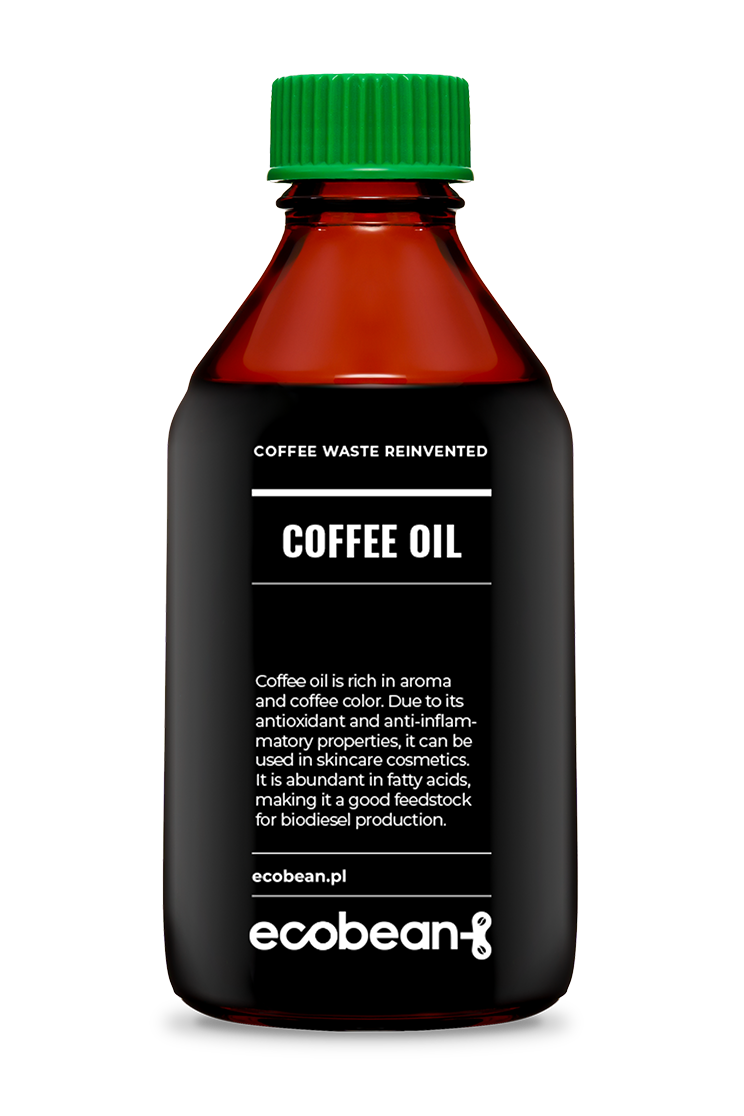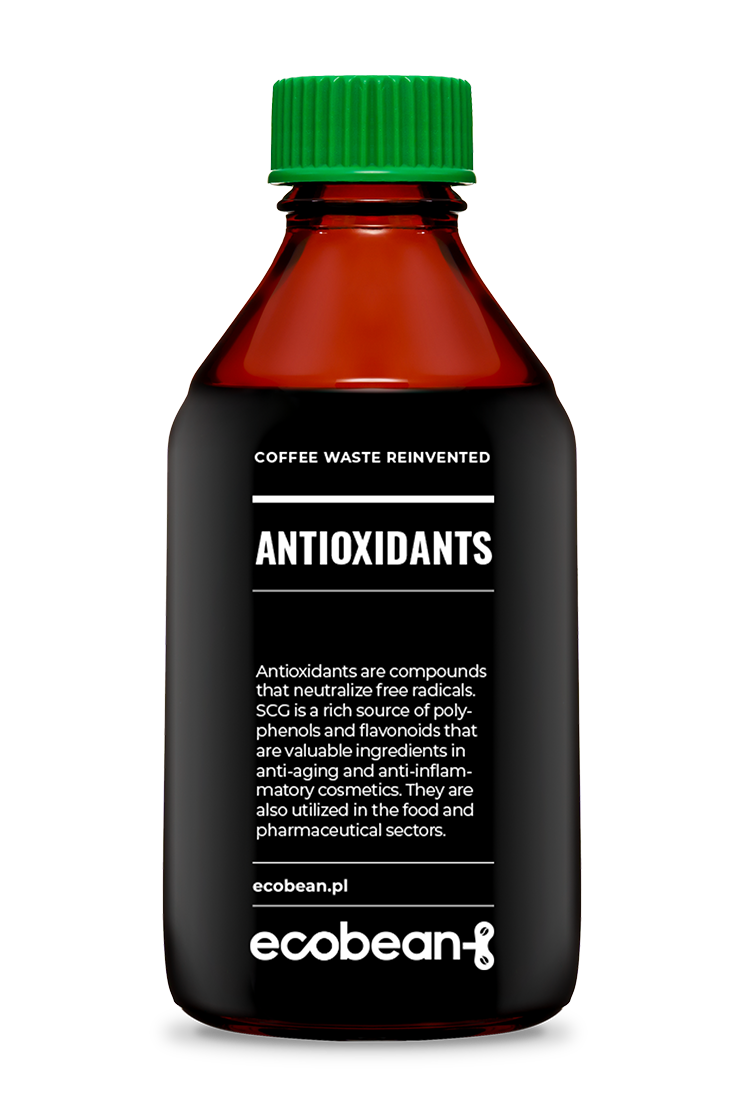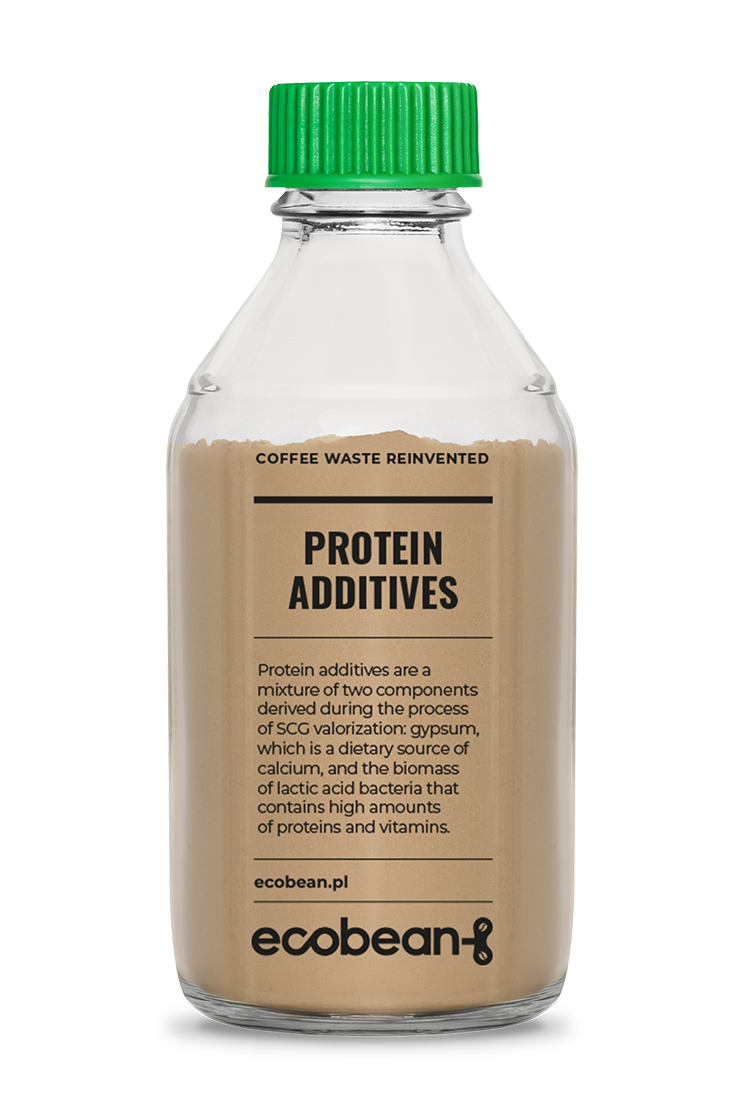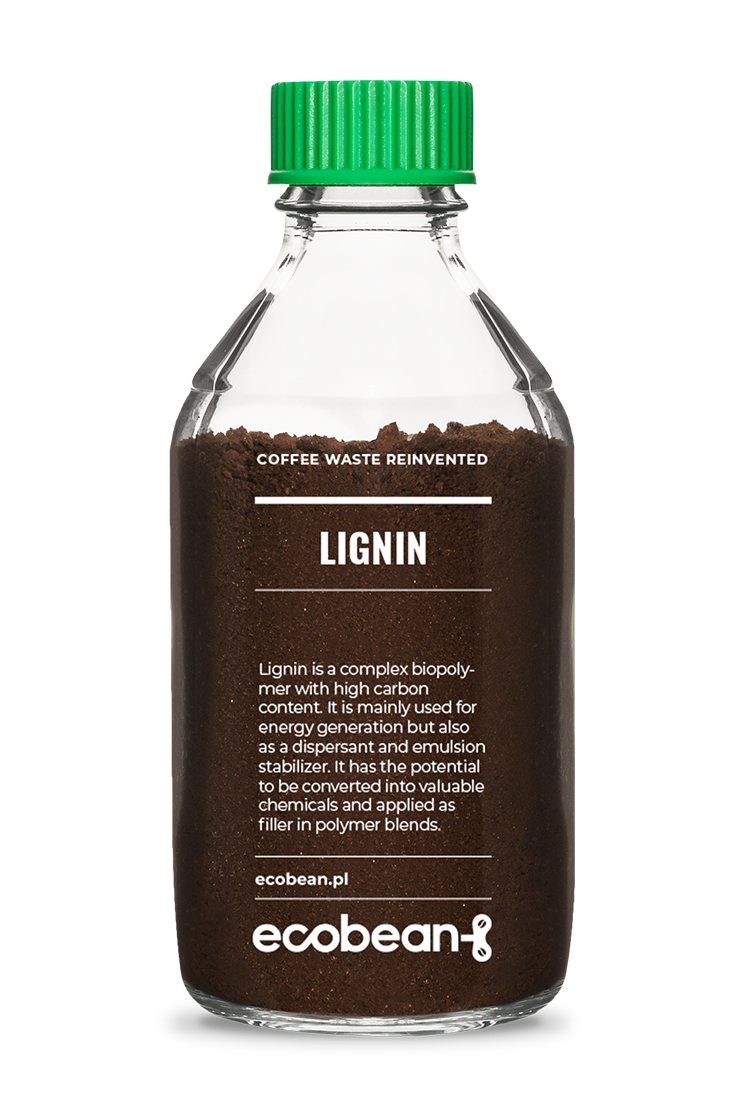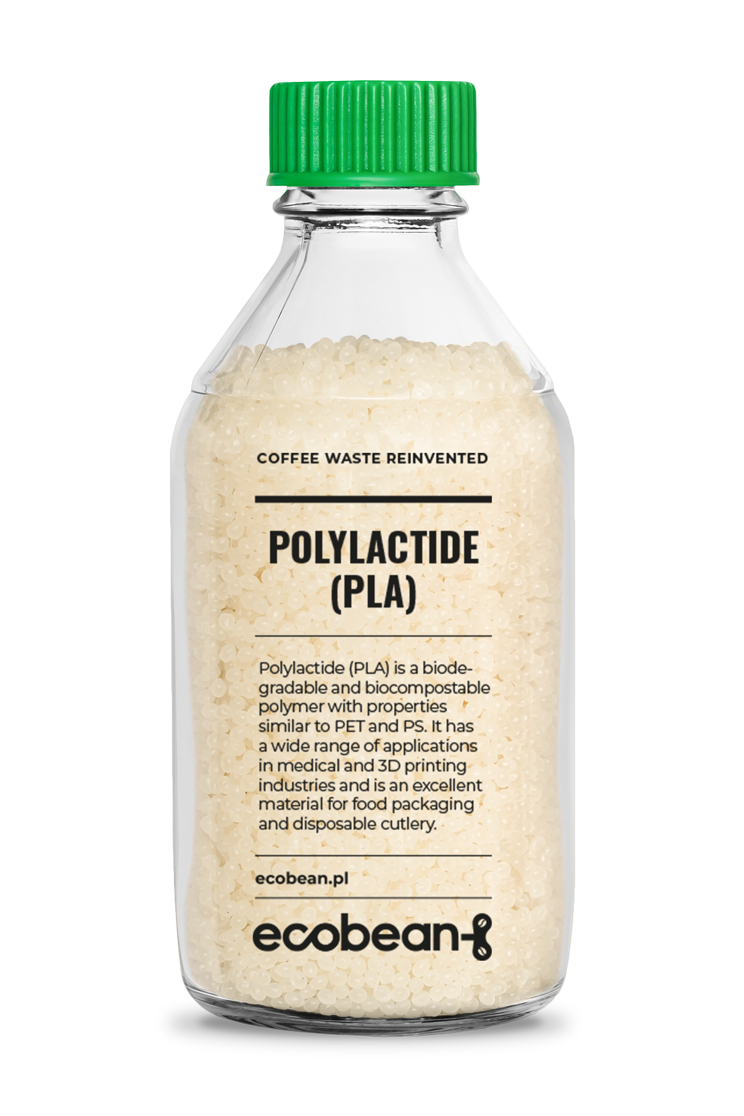
PLA, an eco-friendly, biodegradable polymer, mirrors the properties of PET and PS. Formed from lactic acid polymerization, variants like Poly-L-lactide (PLLA) exhibit high tensile strength and could be successfully used in various industries.
PLA from coffee waste presents an innovative, renewable source for these applications. As sustainability takes center stage, PLA’s market is set for substantial growth.
Polylactide (PLA) APPLICATIONS
Sustainable chemical for various applications
Medical Industry
surgical sutures, implants
3D Printing
preferred for its bio compatibility
Food Packaging
recyclable containers, biodegradable foils
Biodegradable Fibers
manufacturing sustainable textiles
General Manufacturing
eco-friendly plastic alternatives
calculated low carbon footprint
kg CO2e / kg of the product

Polylactide in action
Biodegradable Flower Pots
Our EcoBean Flower Pots are a sustainable and ecological substitute for plastic nursery pots. They are produced from Spent Coffee Grounds (50%) and biodegradable polymer, and as a result, they can be placed into the ground together with any plant. EcoBean Flower Pots biodegrade within 6 to 12 months from being planted, depending on soil and weather conditions.
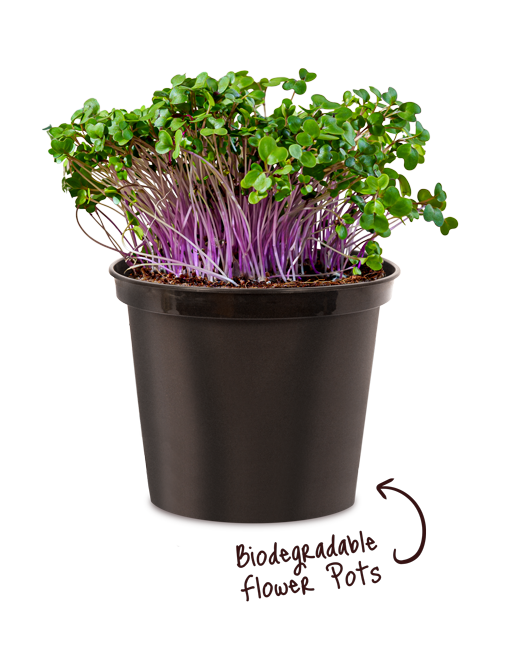
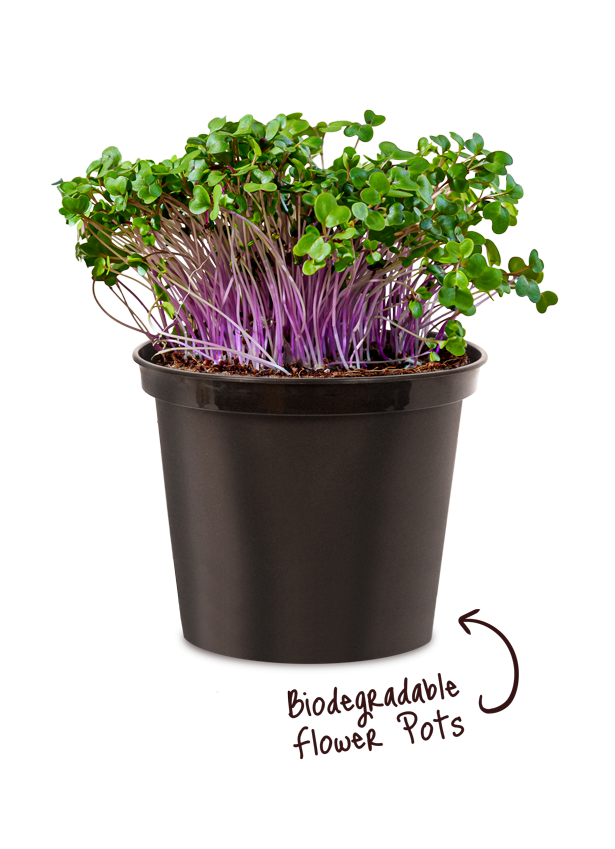
Why you should make a switch
The future is circular, and your chemicals should be too
Quality with
low-carbon
Sustainability shouldn’t mean sacrificing quality. We craft our coffee-derived chemicals with the highest standards, ensuring your products shine while reducing your environmental impact. A win-win for your business and the planet.
High-tech
for sustainability
Our cutting-edge technology transforms coffee grounds into high-performance chemicals, delivering unmatched quality with a conscience. We harness the immense SCG potential and brew all of it with our green chemistry.
Calculated
by Bureau Veritas
We’ve partnered with the leading certification agency, Bureau Veritas, to calculate our carbon footprint. Our results can be used in your sustainability report, boosting your products quality, while your decarbonization goals brew to life.
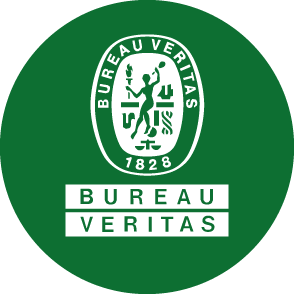

PRODUCT
Product Name
Polylactide
Chemical Name
PLA
Chemical Structure

CAS-no
26100-51-6
PHYSICAL PARAMETERS
State of matter
granules
Odour
n/a
Colour
golden and mild brown
Granularity
1-6 mm
Packaging
in bags with a batch weight of 0,5 kg
Application Examples
(Active Ingredients)
packaging and textiles
Product carbon footprint
1,05 kg CO2e/kg of the product
Freedom to operate
/ IP protection status
Technological line patent application – 2023 submition
• L, L-lactide purification method (patent no. PL222655)
• Method of producing polylactide for biomedical purposes with the use of biocompatible catalysts (patent no. PL225851)
• Method for the preparation of calcium, magnesium and zinc 2-ethylhexanoate (patent no. PL.225850)
Help us reinvent coffee waste!
Cup after cup, after cup…

Let us take care of your coffee waste
With EcoBean your waste becomes a valuable resource. Showcase your commitment to sustainability and boost the circular economy with us.
Create low-carbon footprint products with our chemicals
Capture your customers’ attention with sustainable products. Explore the potential of our coffee-derived chemicals for your applications.

R&D
Koszykowa 75
00-662 WARSAW
Office
Chmielna 73
00-801 WARSAW
Laboratory
Pruszkowska 66
05-830 Nadarzyn


